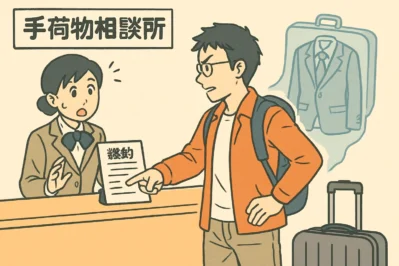Lost Your Luggage in Korea? Negotiate Compensation Like a Pro!
Hello! This is [매일한글] (Maeil Hangeul), here to upgrade your Korean skills to the next level!
Imagine this: you’ve just landed at Incheon Airport, excited for your Korean adventure, but your suitcase is nowhere to be found. A traveler’s worst nightmare! But don’t panic. Today, we’re going to learn how to handle this crisis like a seasoned pro. With the recent surge in tourism to Korea, airline mishaps can happen. Knowing how to confidently and formally negotiate with airline staff in Korean is an essential skill for any advanced learner. Let’s turn a potential disaster into a masterclass in Korean communication!
Key Expressions for Negotiation
Here are some powerful, formal expressions that will show the airline you mean business.
1. 보상을 요구하다 (bosang-eul yoguhada)
* Romanization: [bo-sang-eul yo-gu-ha-da]
* English Meaning: To demand compensation.
* Detailed Explanation: This is a strong and direct phrase used in formal complaints. It’s not simply “asking for” (물어보다) but “demanding” or “formally requesting” what you are owed. ‘보상’ (bosang) means compensation, and ‘요구하다’ (yoguhada) is the formal verb for to demand/require. Use this to make your intentions clear from the start.
2. 규정에 따라 처리해 주십시오 (gyujeong-e ttara cheorihae jusipsio)
* Romanization: [gyu-jeong-e tta-ra cheo-ri-hae ju-sip-si-o]
* English Meaning: Please handle this in accordance with the regulations.
* Detailed Explanation: This is a highly effective and respectful phrase. It shows that you are not making an emotional plea but are appealing to the airline’s official policy (‘규정’, gyujeong). It subtly pressures the staff to follow their own rules for compensation, demonstrating your knowledge and seriousness. The ‘-에 따라’ grammar means ‘according to,’ and ‘처리하다’ means to process or handle.
3. 입은 손해에 대해 배상받을 권리가 있습니다 (ib-eun sonhae-e daehae baesangbad-eul gwolli-ga itseumnida)
* Romanization: [i-beun son-hae-e dae-hae bae-sang-ba-deul gwol-li-ga it-seum-ni-da]
* English Meaning: I have the right to be compensated for the damages/losses incurred.
* Detailed Explanation: This is a sophisticated, almost legalistic phrase that firmly establishes your position. ‘손해를 입다’ means to incur damages or suffer a loss. ‘배상’ (baesang) is a strong word for indemnification or reparation, often used in a legal context. ‘권리’ (gwolli) means ‘right.’ Using this sentence shows you are fully aware of your consumer rights.
4. 대체품 구매 비용을 청구하겠습니다 (daechepum gumae biyong-eul cheongguhagetseumnida)
* Romanization: [dae-che-pum gu-mae bi-yong-eul cheong-gu-ha-get-seum-ni-da]
* English Meaning: I will claim the cost of purchasing replacement items.
* Detailed Explanation: This is a practical and assertive statement for when you need to buy necessities immediately. ‘대체품’ (daechepum) means replacement items, ‘구매 비용’ (gumae biyong) is the purchase cost, and ‘청구하다’ (cheongguhada) means to claim or bill. This informs the airline of your intent to be reimbursed for emergency purchases.
Example Dialogue
Let’s see how these expressions work in a real conversation at the lost luggage counter. (A: Traveler, B: Airline Staff)
A: 제 수하물이 도착하지 않았습니다. 서류를 접수하고 싶습니다.
(My luggage has not arrived. I’d like to file a report.)
B: 고객님, 정말 죄송합니다. 우선 이 신고서를 작성해 주시겠어요?
(I’m very sorry, sir/ma’am. First, could you please fill out this claim form?)
A: 네. 그런데 내일 중요한 비즈니스 회의가 있는데, 양복과 서류가 모두 그 가방 안에 있습니다. 이로 인해 입은 손해에 대해 보상을 요구합니다.
(Yes. However, I have an important business meeting tomorrow, and my suit and documents are all in that bag. I must demand compensation for the damages incurred because of this.)
B: 상황을 충분히 이해합니다. 최대한 빨리 가방을 찾도록 조치하겠습니다.
(I fully understand the situation. We will take measures to find your bag as quickly as possible.)
A: 당장 회의에 필요한 물품들을 사야 합니다. 대체품 구매 비용을 청구하겠습니다. 모든 영수증을 보관할 테니, 항공사 규정에 따라 처리해 주십시오.
(I need to buy necessary items for the meeting right away. I will claim the cost of purchasing replacement items. I will keep all the receipts, so please handle this in accordance with the regulations.)
B: 알겠습니다, 고객님. 영수증을 꼭 챙겨주십시오. 여기 사건 접수 번호입니다.
(I understand, sir/ma’am. Please make sure to keep your receipts. Here is your case reference number.)
Cultural Tip & Trend Deep Dive
Procedure is Power in Korea!
While you might see dramatic complaint scenes in K-dramas, a calm, firm, and logical approach is far more effective in reality. In Korea, official processes (절차, jeolcha) are taken very seriously.
- Show Respect for the System: Using phrases like “규정에 따라 처리해 주십시오” (Please handle it according to the regulations) shows that you respect their system. This approach is often more persuasive than raising your voice, as it positions you as a reasonable and knowledgeable person who cannot be easily dismissed.
- Documentation is Key: In any formal dispute in Korea, meticulous record-keeping is crucial. When you say you will keep receipts (“모든 영수증을 보관할 테니”), it adds significant weight to your claim. Always get a case number (사건 접수 번호), take photos, and keep a log of who you spoke to and when. This thoroughness is highly valued and strengthens your negotiating position.
Let’s Wrap It Up & Practice!
Today, we learned some advanced Korean expressions to confidently handle the stressful situation of lost luggage. By demanding compensation (보상을 요구하다), referencing regulations (규정에 따라), and asserting your rights (배상받을 권리가 있다), you can navigate this crisis effectively.
Now, let’s test your knowledge!
- Fill in the blank: You need to tell the airline staff you have a right to be compensated.
저는 손해에 대해 배상받을 ______가 있습니다. (Hint: “right”) -
Sentence Building: You had to buy a new shirt and toiletries. How would you formally state, “I will claim the cost of purchasing replacement items”?
Great job today! Don’t let travel troubles intimidate you. With these phrases, you’re prepared for anything. Try using one of today’s expressions to make your own sentence in the comments below






